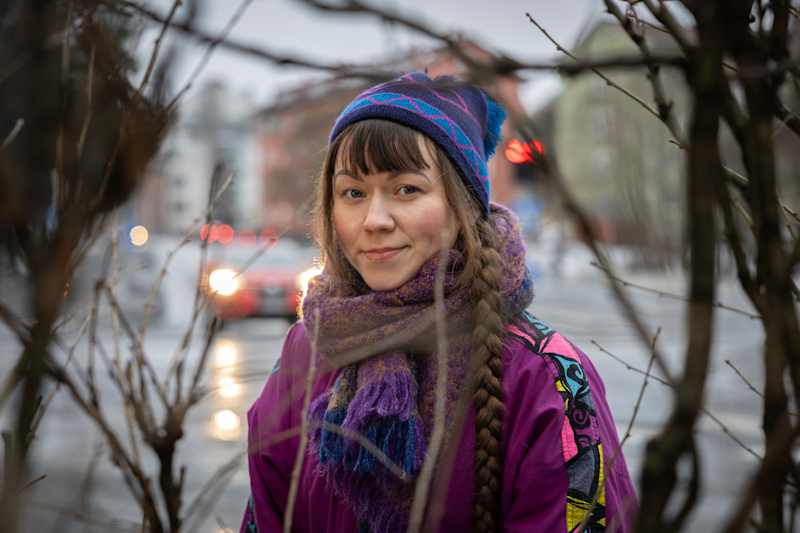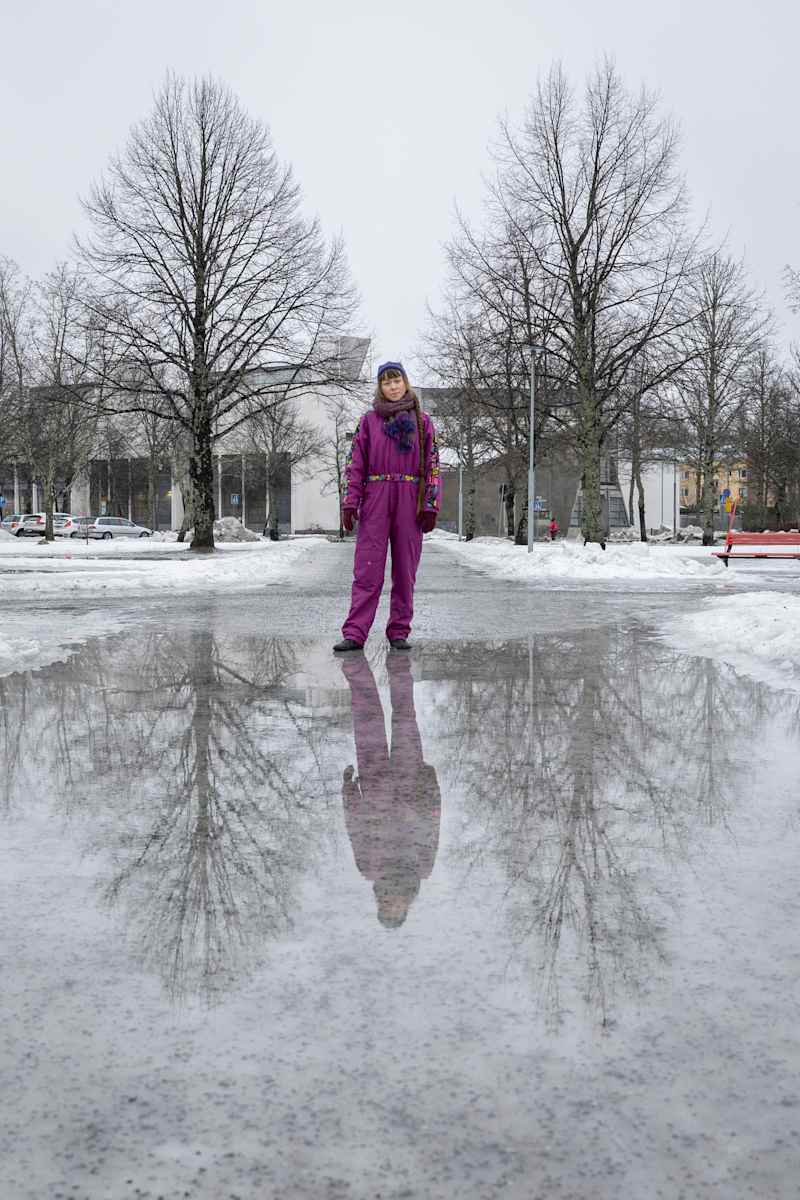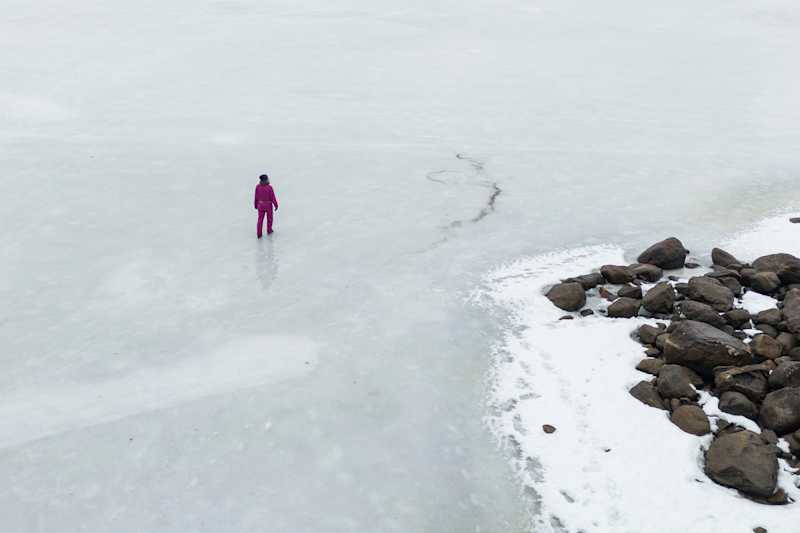Forest grief is a forbidden emotion in Finland, says psychologist Juni Sinkkonen

Climate change may intensify not only weather phenomena but also emotions. These are still little talked about.
Sinkkonen is not alone in her feelings. As a psychologist, he is certain of one thing: emotions related to nature, the weather and the environment have a greater impact on well-being than is generally acknowledged.
Sinkkonen is a doctoral researcher at the University of Eastern Finland, specialising in environmental studies. He knows what kind of feelings to keep silent about in Finland.

Not just a matter for activists
Climate anxiety is the most familiar of the environmental lessons. But it has a political echo: some laugh at the activists’ distress and outrage. For some, it even sparks outrage.
– In principle, all people experience environmental feelings. They are not just a matter of activists, Sinkkonen points out.
An ordinary cottage owner may mourn the felling hole in the landscape. The city dwellers are annoyed as the forest visible from the home window becomes a block of flats. Then it is an environmental feel. Equally, the feeling can be a joy of snow or sensitization from the spring mouse ear.
Climate change enhances not only weather phenomena but also emotions. As snow -free winters, clouds and rains become more common, the worry increases at the same pace. Pharmacy symptoms may also increase.
Grief has no right to vote
Sinkkonen believes that more environmental lessons should be talked about. There is a need for it. When Sinkkonen has led the training on the subject, many participants have come to praise.
– People are grateful when you can safely talk face to face and disregard for the previously silent experiences.
As a psychologist, Sinkkonen knows that there are emotions that do not fit into social norms. For example, the study speaks of non -voting sadness. It can be, for example, silent sadness associated with miscarriage.
According to Sinkkonen, many environmental feelings are non -voting rights. They are not recognized or invalidated. For example, Sinkkonen identifies the forest in Finns. A large number of Finns want more sustainable forestry. But if you publicly mourn the lost forest, you get a stamp.
Rage, hope and inadequacy
It may be that under the surface Finland experiences stronger environmental feelings than in many other countries. Nature is such an essential part of Finnish lifestyle.
As politics is associated with emotions, they become even more hot.
In 2018, Sitra mapped the air conditioning experienced by Finns. The strongest of these was interest, enthusiasm, fake, hope, skepticism, a sense of inadequacy and anger.
Feelings of inadequacy were the most common among middle-aged people. Young people, on the other hand, felt guilty and shame more than older age groups.
In the 2021 Youth Barometer, three to quarter young people expressed their sorrow for the deterioration of biodiversity and the extinction of species.
Quite a number of emotions.
Yet, for example, young people’s climate anxiety may be smiled in public debate.
Sinkkonen estimates that some people may not recognize environmental feelings in their daily lives. For young people, these feelings are more familiar.
-The crowd of climate cocks in social columns is small but loud.
Sinkkonen, as an expert at Tunn’s Association, runs workshops on environmental lessons. For example, they may walk in nature and stop to explore different senses. Body and creative methods raise environmental feelings.
Tools have been developed to handle emotions. The climate sensation, on the other hand, may facilitate the constructive treatment of emotion.
A year ago, the Mental Health Web Service published a self-care program in Finnish aircraft anxiety. Its purpose is to support well -being and help find operating models that alleviate anxiety.
The “climate swap” is now the subject of much scrutiny
According to Sinkkonen, the tools are good and can also be used with others. But environmental lessons should not only be a problem for the individual.
– The eco -crisis is easily spent on public debate on the individual’s shoulders, says Sinkkonen.
Personal carbon footprint calculators can increase environmental awareness, but Sinkkonen is contradictory: they emphasize individual choices, even though the fault is over -consumption in a struck system.
\”Air Conditioning\” is now a burning research topic in behavioral science. Nudge thinking refers to mechanisms that make durable choices easy or automatic.
For example, when booking an airline ticket, the climate compensation fee could be automatically included in the ticket price. If you do not want to pay it, you would have to put the consumer separately in the box.

Not a sign of a mental health problem
The ecocrisis is a problem for human behavior, so it requires behavioral experts. According to Sinkkonen, psychologists and other social care professionals could take on a more prominent role.
At present, there is hardly any talk of environmental lessons in psychologists.
In his ongoing doctoral dissertation, Sinkkonen looks at the role of psychologists in sustainability.
– Environmental feelings should not be pathologized. They are not, in principle, a mental health problem, Sinkkonen points out.
As a psychologist, he especially wants to support young people in life with different environmental feelings.
Sinkkonen reminds us that emotions are not only in the head and the body. They guide the lives of their own values \u200b\u200bto act and live.
– Hope is a strong feeling. For me, it is to work for a common life.
